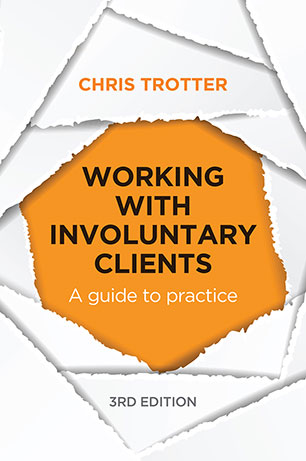Pro-social modelling is an approach to the supervision of involuntary clients which has been shown in numerous research studies to be related to improved outcomes for clients. In particular, reductions in re-offending by as much as 50 percent have been seen among offenders supervised using pro-social modelling principles. The research evidence suggests that it should be part of the repertoire of every professional who works with offenders.
Pro-social modelling is a style of supervision rather than a specific program. It has been developed by Dr Chris Trotter and others through a number of research projects. The approach is outlined in detail in Working with Involuntary Clients (Trotter, 2013). It is an integrated intervention model which involves helping clients to understand the role of the worker and the client in the supervision process, it involves the worker identifying and reinforcing the pro-social things that clients say and do, appropriately challenging clients and working collaboratively with clients to address their criminogenic needs. These skills are offered as part of a respectful approach by the worker.
Dr Trotters Pro-social modelling workshops are sought after worldwide. He has delivered the training with interdisciplinary staff throughout Australia, NZ, the UK, Austria, Canada, Singapore and Jersey.
Learning Outcomes
- Frequent opportunity to observe and practice the model through role-plays
- Applied skills training relative to the identification and reinforcement of clients pro-social values and behaviours and appropriate challenging of antisocial/pro-criminal values and behaviours
- Confidence and knowledge to make use of the pro-social approach in day-to-day evidence-based practice
- Ongoing support through the provision of email and/or online professional supervision


